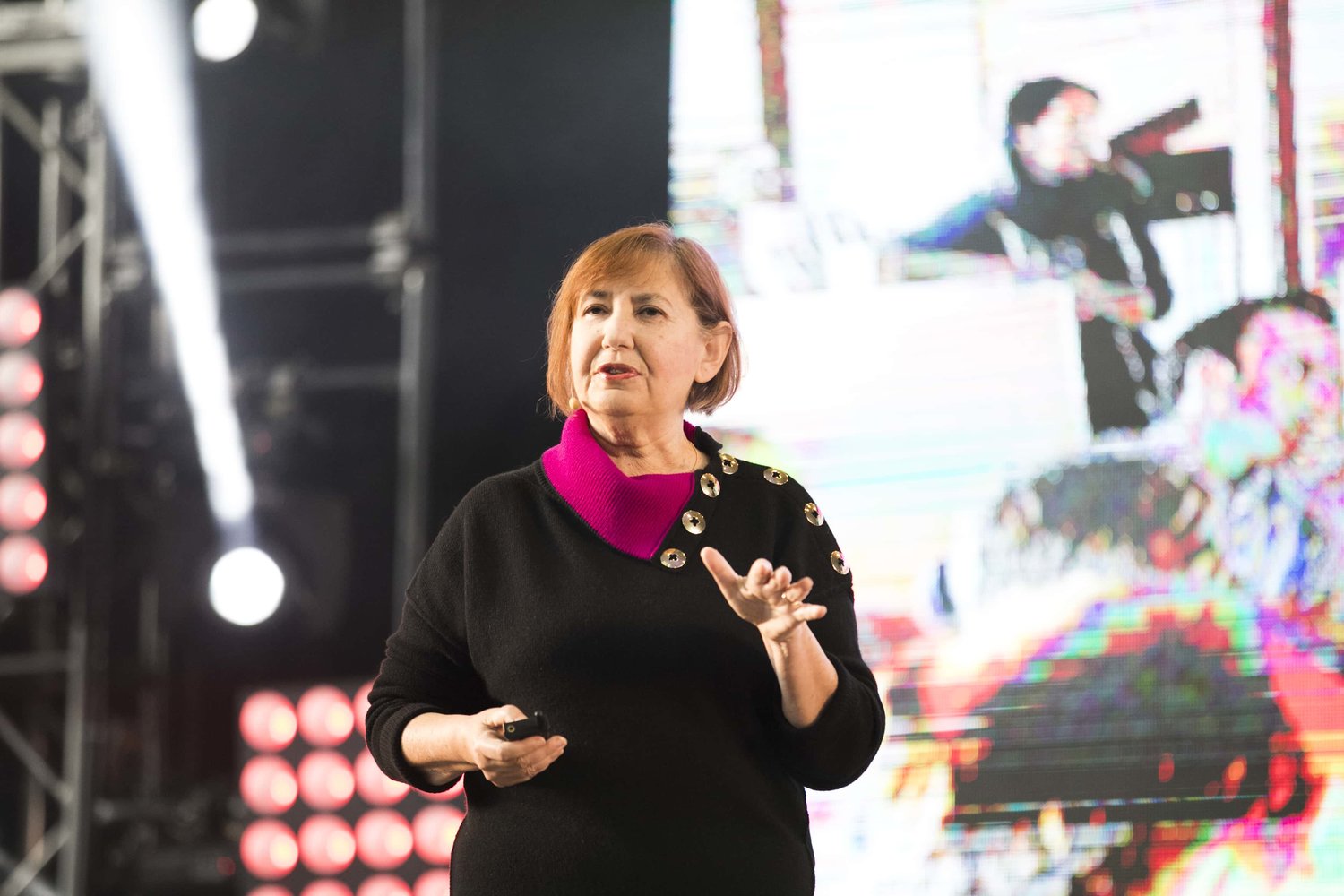Marina Gorbis, executive director of the Institute for the Future (IFTF) share five rules for future thinking during her talk in the 5th International Conference on Educational Innovation at Tec de Monterrey.
1. No one can predict the future
According to Marina Gorbis, people and organizations can make educated guesses about some isolated events, like the value of markets. But it is impossible to predict the future on a grander scale.
From her point of view, to think about the future is all about just being ready for it, that is the job of a futurist. She invited the audience to think about how current business ventures work.
“Someone had an idea.” She said about the rise of entrepreneurship, emphasizing the idea of thinking ahead. She argued that for a business to develop, the people behind that idea, need to see ahead, to think about the future, and how it will affect their company.
Thinking about the future makes us push of present forward, she added, as she explained the correlation between science fiction and technological advancement in real life.
2. Focus on the signals
As previously said, no one can accurately predict the future, but Gorbis has an interesting perspective about how to anticipate it. We can look at the information we have now and look for clues in it about what comes next, she explained that the right signals could come from things like new technology or even a story.
A futurist can detect this signals and see in them glimpses of what may lead us into in the future. An example of one of this signals is the e-Bay case. The company developed a scoring system for the sellers in their platform, that way they could build a reputation and potential buyers knew how trustworthy they were, helping them to find the best store to buy from.
This model was replicated by other companies like Uber and Linkedin, setting the trend for online businesses.
3. Look back to look forward
“Is very important to understand history, there are patterns in history that repeat themselves, and we need to understand the similarities between them.”
Gorbis listed some historical events, like the invention of the print, which later evolved into the rise of press and advertising, empowering the people who use them as a medium for communication and propaganda.
We can see something similar happening nowadays with the rise of the Internet, social media, and applications as the main form of communication. They offer a lot of advantages and the possibility for more advancement, but they also create problems like the proliferation of fake news.
4. Discover the patterns
Gorbis stated that we, as a society, want to see the future to have the hindsight that let us look at the trends that lead us into the world of tomorrow.
She referred to two perpendicular lines that give context to this patterns, they both cross each other as one goes down and the other up, the first one represents society’s current lifestyle and the second one the new trends that eventually will become the standard of how things are done.
As she declared, there’s always this shift that sparks a new way do something, our ability to “see” the future depends on our capacity to notice the early stages of this shift.
5. Create a community
A futurist job is a collective effort, as Gorbis stated, she pointed out that the most fundamental thing when thinking about the future is to have the vision that lets you piece together all the points of view and perspectives from one subject or issue.
To secure the future of education is imperative that we network with people that understand how education, technology, and economics work. People who are doing things differently.
“To think about the future is a critical skill for the present times.” She talked about this ability as something students, and teachers must learn and practice. Everyone should have an open mind to do things in new and better ways.
The IFTF director presented a project to track everything we learn. The Ledger is a blockchain based platform that lets you keep a record of everything you learn, as well as all the projects, jobs and gigs you completed using that knowledge.
The system groups all your knowledge together, edublocks, this units represent 1 hour of learning, on any subject, either academical or practical.
This edublocks can be obtained from a tutor, a university, a job, and app or a community center. They can also be displayed on social profiles, to showcase the time invested in skills like artistry, problem-solving, communications and more.
That way employees can offer jobs that match with various candidates, taking into consideration their unique skills and profile.
Ledger will also produce data that can be used to offer specific feedback. Users will be able to offer a percentage form their edublocks in exchange for free courses much like a scholarship.
This article from Observatory of the Institute for the Future of Education may be shared under the terms of the license CC BY-NC-SA 4.0 
)
)


)